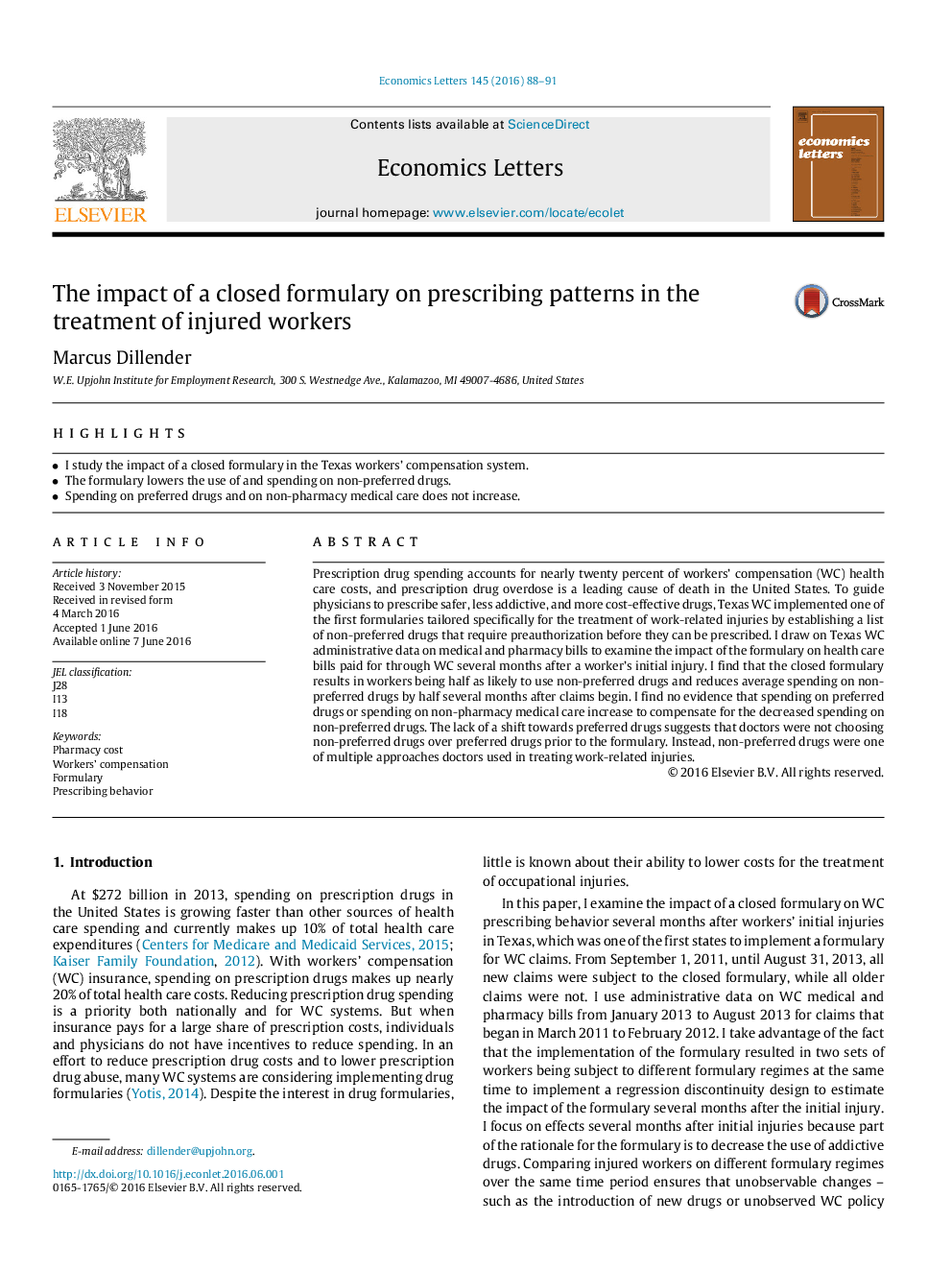| Article ID | Journal | Published Year | Pages | File Type |
|---|---|---|---|---|
| 5058195 | Economics Letters | 2016 | 4 Pages |
â¢I study the impact of a closed formulary in the Texas workers' compensation system.â¢The formulary lowers the use of and spending on non-preferred drugs.â¢Spending on preferred drugs and on non-pharmacy medical care does not increase.
Prescription drug spending accounts for nearly twenty percent of workers' compensation (WC) health care costs, and prescription drug overdose is a leading cause of death in the United States. To guide physicians to prescribe safer, less addictive, and more cost-effective drugs, Texas WC implemented one of the first formularies tailored specifically for the treatment of work-related injuries by establishing a list of non-preferred drugs that require preauthorization before they can be prescribed. I draw on Texas WC administrative data on medical and pharmacy bills to examine the impact of the formulary on health care bills paid for through WC several months after a worker's initial injury. I find that the closed formulary results in workers being half as likely to use non-preferred drugs and reduces average spending on non-preferred drugs by half several months after claims begin. I find no evidence that spending on preferred drugs or spending on non-pharmacy medical care increase to compensate for the decreased spending on non-preferred drugs. The lack of a shift towards preferred drugs suggests that doctors were not choosing non-preferred drugs over preferred drugs prior to the formulary. Instead, non-preferred drugs were one of multiple approaches doctors used in treating work-related injuries.
